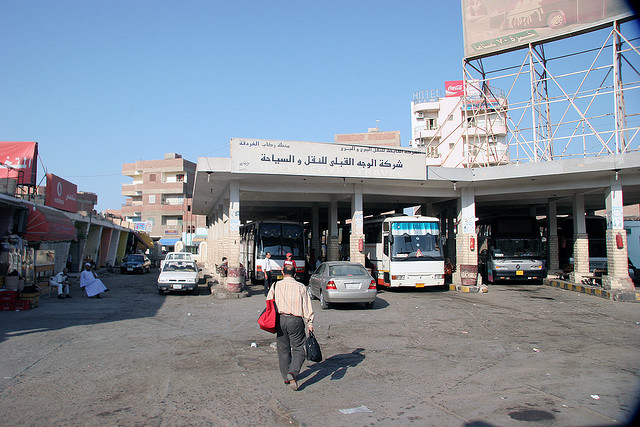
Upper Egypt has its own specific subsistence and growth crises due to its systematic neglect by successive Egyptian governments. Nevertheless, the widespread impression given by this situation is that Upper Egypt is cut off from the political and social affairs in the rest of Egypt, which is not the case.
The kinds of polarization and partisanship in the cities of the north and the delta region among those who support the Muslim Brotherhood and those who stand with the opposition or who lean toward the Salafist parties are also present in Luxor and Aswan. The same rejection of inept government services and deficient policies found elsewhere also dominates the conversations of women and men in Upper Egypt. They candidly express that rejection in their commentary on current events.
Thus, the claim that Upper Egypt is far removed from political and social affairs is not true. It is spurious to claim that these women and men decide their voting preferences based on their subsistence needs (as the legend of vote-buying through the distribution of sugar and cooking oil would suggest); or to claim that they are influenced by dishonest appeals to religion in politics (as the legend of the single-minded citizen whose consciousness is formed in mosques and shrines would suggest); or to claim that they obey base inclinations toward tribalism. The provinces of Upper Egypt – specifically Luxor and Aswan, through which I traveled over the past few days – are made up of different levels of political awareness, but the majority is more profoundly aware than this and cannot be easily summarized by the phrases "indigence" (in the sense of subsistence living), the "politicization of religion," and "factionalism."
However, to be precise and accurate when attempting to understand the conditions of Upper Egypt, it is necessary to understand the region’s uniqueness, associated with its political history and the role of the central government. After an extended period of neglect and marginalization, the citizens of Luxor and Aswan as well as those further north in Qena, Sohag, Assiut, and Minya do not trust the central government, nor do they look to it as a source of justice, equality, or economic growth. The most that a citizen of Upper Egypt expects from the central government is the organization of the basic water rights for irrigation and agriculture and the minimum level of security necessary to conduct daily life and public affairs. Historically, this provided a wide berth for tribes and large families to preserve their local ties and to provide security services while also protecting the interests of their members. In the decades that followed, right wing religious groups and organizations attached to churches followed their lead. Thus, the awareness of the citizen of Upper Egypt is influenced by the role of these tribes, groups, and organizations. Indeed, this awareness is manifested as a resistance to the central government and whoever controls it.
It is true that this situation changed dramatically after the January Revolution when some parts of what had been the opposition, particularly the religious right, were transformed into the new rulers. Clear majorities in Upper Egypt voted for the Muslim Brotherhood and the Salafists in the past two years, during the vote on constitutional amendments in 2011 as well as the parliamentary and presidential elections and finally in the constitutional referendum in 2012. However, Upper Egypt today seems prepared to return once again to its long history of resisting the central government, due to continued systematic negligence of it by the Brotherhood government and to poor management of the central government. It has even stumbled in providing distribution to the irrigation and agriculture apparatus (hence the coming diesel crisis) and in providing basic security.
Luxor and Aswan are raising a ruckus in their rejection of Brotherhood rule and of the right-wing religious forces, which are responsible for declining living standards, poor governmental management, and ignoring the essential components of growth in Upper Egypt. Dishonest use of religion is no longer enough to overcome all of this. There is a clear rejection of the administration, resistance to the central government, and an active search for an alternative to the Brotherhood and the Salafists, which the citizen of Upper Egypt has yet to find because a glance at the liberal and leftist forces and parties in the opposition reveals that they are just as wretched as the Brotherhood.
This article originally appeared in Arabic in El Watan.
Photo: astique
Image: upper%20egypt%20bus%20station.jpg
